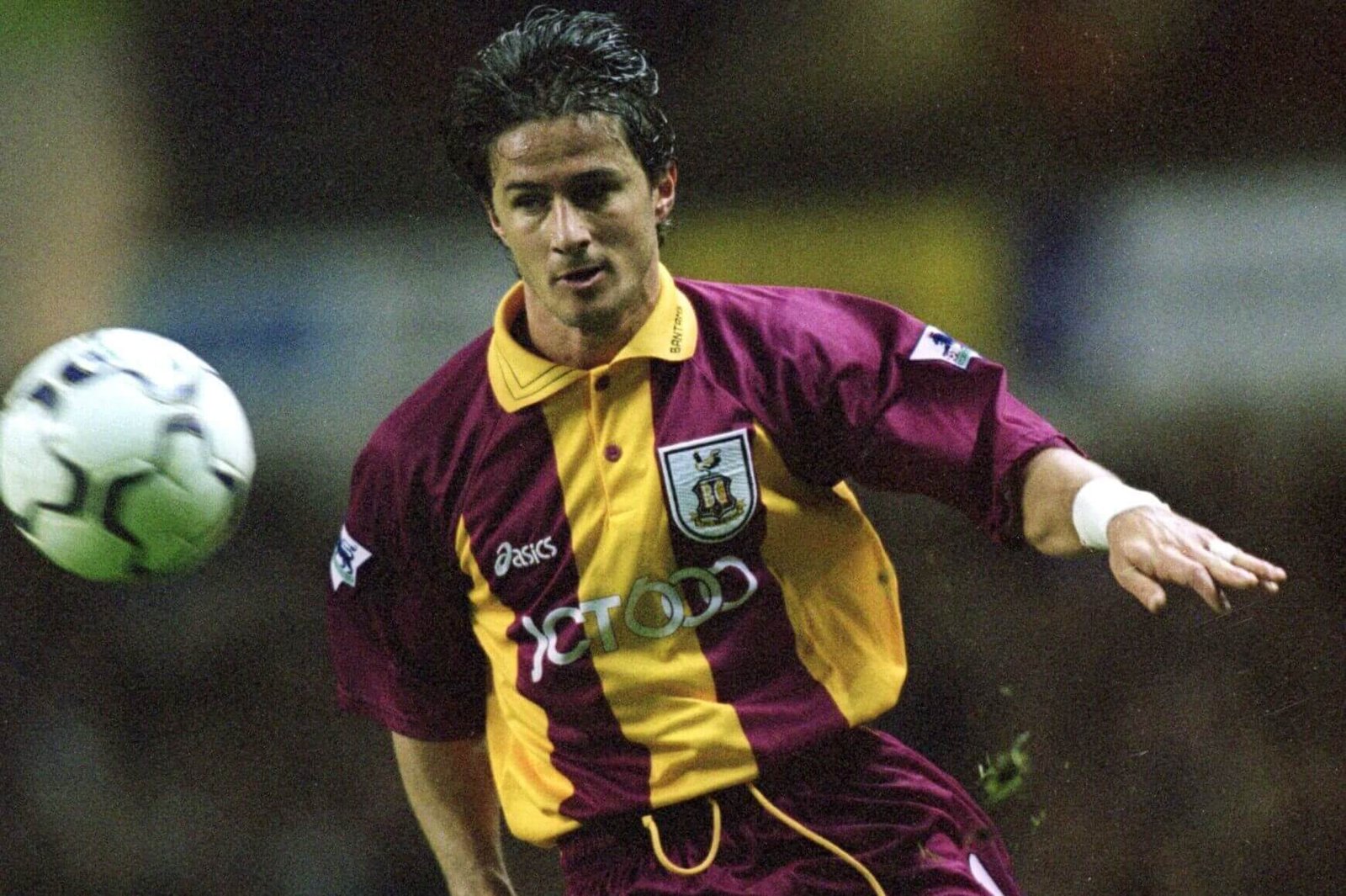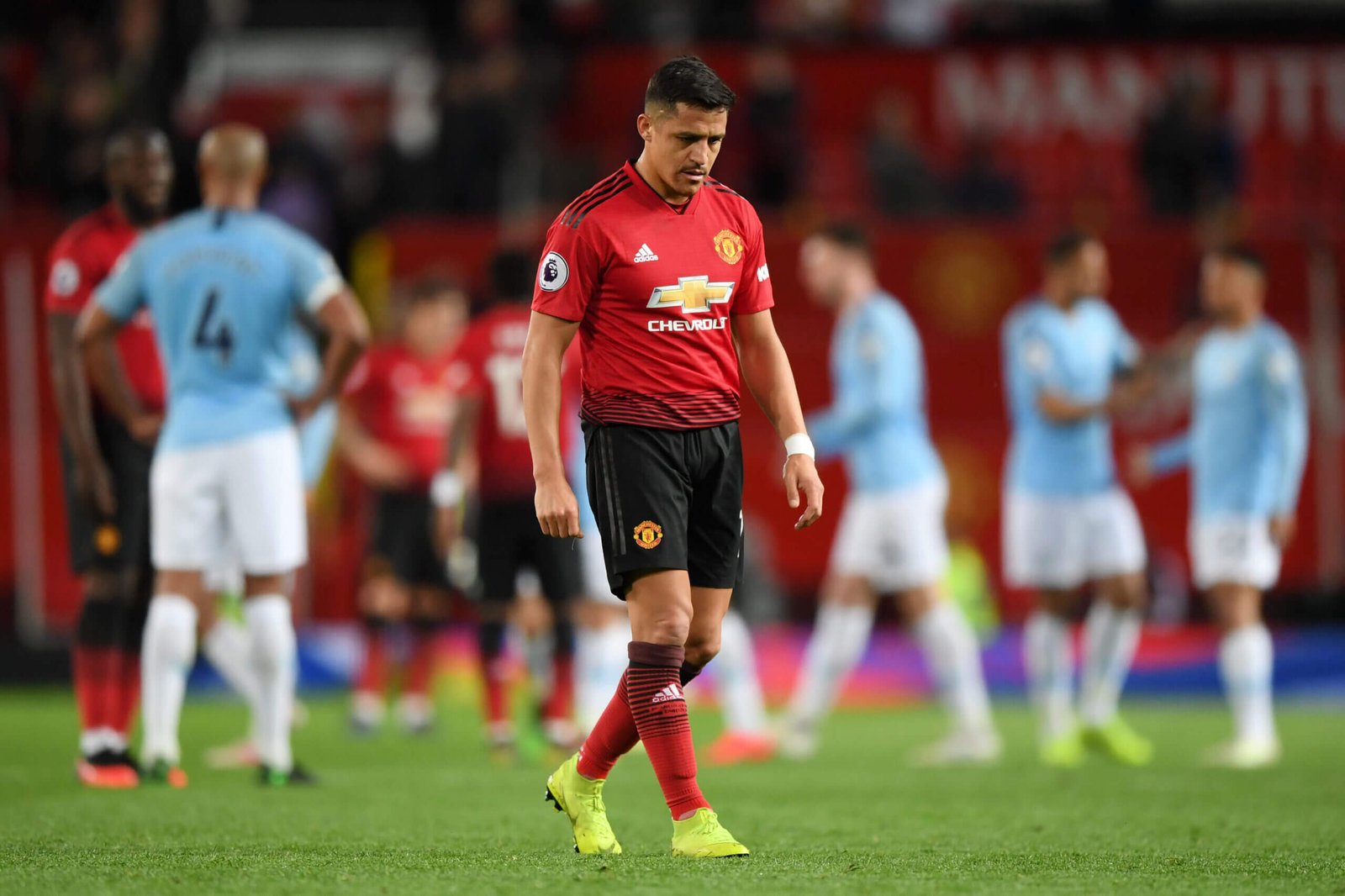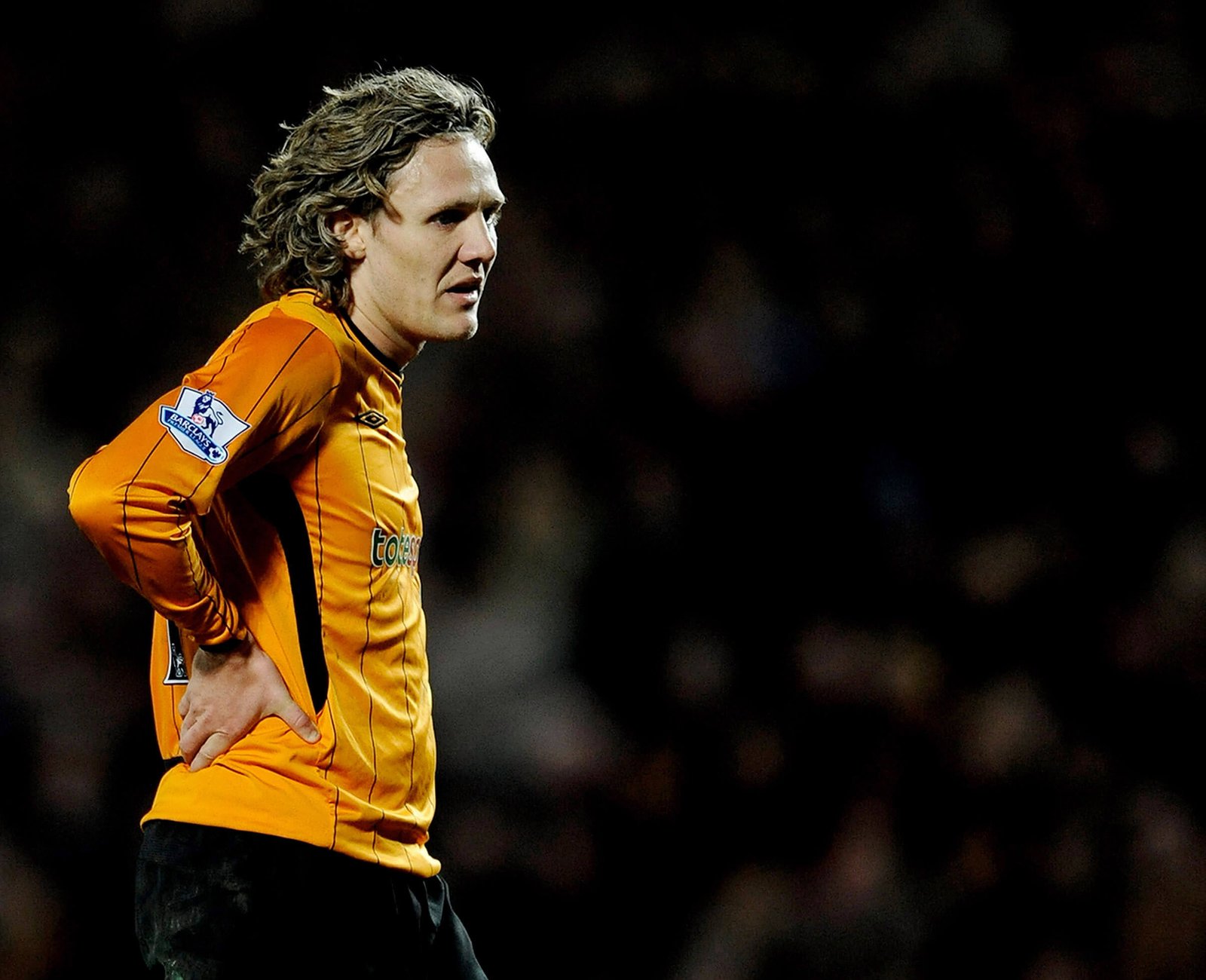“It was crazy. You had players there on big, big money who weren’t really pulling their weight. Lots of the lads resented it as they were working their socks off but not earning anywhere near the same salary.”
Harry Redknapp is reflecting on his time as manager of Queens Park Rangers in 2014 when the club, newly promoted to the Premier League, lured glamorous names to a relegation fight in west London by offering hefty salaries. The experiment backfired disastrously and QPR’s years of bloat are often used as a cautionary tale for other clubs to avoid.
It’s an extreme example, but there are other high-profile cases where salary differences have created tension in dressing rooms. Juventus suffered a backlash when they smashed their relatively disciplined wage structure to bring in Cristiano Ronaldo in 2018. Further down the food chain, Xherdan Shaqiri ruffled feathers with his behaviour at Stoke City when he was their best-paid player, as did Jimmy Bullard at Hull.
Yet clubs keep doing it. Just this week, Ajax made ex-Liverpool captain Jordan Henderson comfortably their highest-paid player after he joined following a sorry six-month spell in Saudi Arabia.
Henderson will earn around £120,000 a week in Holland, around £50,000 a week more than the club’s next-highest earner. Time will tell as to how that plays out in the Netherlands, but it is clearly a calculated gamble.
It isn’t true, however, that star players earning far in excess of their team-mates always equates to disharmony. In most instances, players accept that top talents earn the most, realising their contribution not only benefits the team but also boosts their own pay packets via win bonuses.
So how much do salary differences matter? How much is it openly discussed as a topic? And just how toxic is it when it does cause problems?
Nedum Onuoha was part of that infamous QPR dressing room when an influx of big names arrived on massive wages that created resentment in the dressing room. They finished bottom in 2013.
“The QPR situation was a unique one in some ways,” Onuoha tells The Athletic. “The club went through a massive change in a short period of time. There was a wave of players coming in when I first joined QPR. But some of the bigger names came in the second season, like Julio Cesar and Chris Samba, and that’s when you started hearing about £100,000-a-week salaries.
“I think the biggest factor was more for the people who had been there a few years who basically had a Championship package, on around £10,000 to £25,000 a week. It was two different clubs running at the same time.”
Onuoha, who signed for QPR from Manchester City in January 2012, says the situation was made worse as the club were stuck in a downward spiral, rooted at the bottom of the table.
Nedum Onuoha says QPR tried to change too much too soon (Dan Mullan/Getty Images)
Redknapp, QPR’s manager at the time, agrees.
“If you’re at Tottenham you expect Harry Kane (before he went to Bayern) to get paid more than you — you don’t worry, he’s worth the money and he performs,” he tells The Athletic. “QPR was different because some of the lads who had been there since the Neil Warnock days, good lads, they had the hump with a few of those who had come in on good money who weren’t really pulling their weight.”
Onuoha contrasts the extreme situation at QPR with the changes he experienced at City, which he described as a more gradual evolution, with the exception of Robinho’s signing.
“What City got right was it was quite gradual. They would bring players in but they didn’t sign a whole new starting XI straight away. The new signings, many of whom were already marquee players in the Premier League, all had the same objective: to win the league.”
Not only did the new signings strengthen the team, Onuoha also points out that they provided an opportunity for some of the club’s long-standing players, like Joe Hart and Micah Richards, to earn more as the club’s wage ceiling rose.
QPR were not the first club to roll the dice to try and cement their Premier League status. Bradford City had tried the same tactic in the summer of 2000, with equally disastrous results.
After winning promotion in 1999, they stayed up the following campaign with the core group who got them up. However that summer Bradford changed their approach, signings veteran stars like Dan Petrescu, David Hopkin, Stan Collymore and Benito Carbone. Their wage bill went up from £5million to £11m — Carbone signed from Aston Villa on a £40,000-a-week deal — but they still finished bottom.
Just a year after being relegated from the Premier League, the club went into administration, partly as a knock-on effect from the collapse of ITV Digital, but also because of their crippling wage bill. Chairman Geoffrey Richmond later described the club’s signing spree as “six weeks of madness”.

Benito Carbone was an expensive flop at Bradford City (Craig Prentis /Allsport
The effect on the dressing room, however, was less catastrophic. Chris Hutchings, Bradford’s then manager, echoes Redknapp when he suggests that players will tend not to complain if results are good. “It’s when it doesn’t work out that everyone can turn around and say that’s a waste of money,” he says.
Paul Jewell, Hutchings’ predecessor, agrees. “My experience of it is players don’t really care so long as that player who comes in on big wages is winning you games,” he tells The Athletic.
Jewell cites the example of Emile Heskey, when he was Wigan Athletic manager from 2001-2007, as a player on big wages who galvanised the squad.
“Emile was the outstanding wage earner for us, but because he was so good and the lads loved him that never became a factor,” he says. “If you have a player who keeps winning you games, you think, ‘Keep paying him because if he’s getting paid that means I’m doing well, too’.”
More recently and higher up the pyramid, Manchester United’s wage structure has caused rumblings of discontent.
Alexis Sanchez, one of a number of starry-named signings that have flopped at United in recent years, was reported to earn a base salary of £300,000 a week, with add-ons that could push it to £500,000 a week. Before he joined from Arsenal in January 2018, Manchester City had pulled out of a deal as they felt his weekly wage would break their salary structure, lead to more players asking for a rise and disrupt dressing-room dynamics.
After failing at United, Sanchez ended up on loan at Inter Milan where United paid 40 per cent of his salary (£6m a year) before joining the Italian club on a free transfer in August 2020.
In the same summer Sanchez joined Inter on loan, United made David de Gea the best-paid player in the Premier League with a new £375,000-a-week deal. Some in the United hierarchy later regretted that as it was felt it created more wage inequality in the dressing room while de Gea suffered a slump in form. He left the club at the end of his contract this summer and is still a free agent.

Manchester United regretted their decision to sign Alexis Sanchez (Shaun Botterill/Getty Images)
This is still an issue that exists at the club. Sir Jim Ratcliffe, who agreed his deal to buy a 25 per cent stake in the club on Christmas Eve, cited the signing of Casemiro on a five-year contract worth £350,000 a week as an example of the club’s bloated expenditure.
Before he left for Saudi Arabia, Ronaldo had been paid around £450,000 a week at Old Trafford, further destabilising United’s wage structure. This, though, tends to be the way with Ronaldo: Juventus had also smashed their wage system to sign him from Real Madrid in 2018.
From 2015-18, a top earner at Juve might make between €6m and €9.5m a year (between €115,000 and €182,000 a week). Ronaldo, however, came in on around €596,000 (£513,000) a week or €31m net (€55m gross).
For several years, Arsenal also had a lopsided wage bill which saw marquee signings Mesut Ozil and Pierre-Emerick Aubameyang paid significantly more than the rest of the squad — around £350,000 a week in each case. As their first-team involvement declined, it became a running sore at the club and the decision by executives, including head coach Mikel Arteta, to sell the pair was seen as a watershed moment.
After they left, Arsenal set about attempting to create a sense of parity among their top earners which is widely deemed to have been a success.
On the whole, players and managers have no issue with the club’s stars earning more so long as they are proving their worth and because their impact helps everyone else.
When Mohamed Salah signed his £350,000-a-week contract extension at Liverpool in the summer of 2022, the attitude among his team-mates was that he deserved every penny. Similarly, there were no complaints among Brentford players when the club made it clear they were happy for Christian Eriksen to become their best-paid player after his successful six-month spell in 2022. In the end, he signed for Manchester United instead.
It is when the top earners are deemed to be underperforming that problems bubble up.
Jimmy Bullard signed for Hull City from Fulham in January 2009 on a £50,000-a-week salary, plus £5,000 in appearance bonuses. As the man himself put it in a previous interview, “Thank you Hull City for changing my life. I’m dropping cash everywhere, I’m bleeding cash.”
Phil Brown, Hull’s manager at the time, admits that Bullard’s remuneration — and performances — had bred ill-feeling.
“There was a lot of resentment at Hull that Jimmy came in on big money and his contribution at the start was very, very unfortunate for me and for him,” he tells The Athletic. “He got injured in his first game. But when he actually came back to the party I think players were looking at him and expecting more in terms of the energy levels.”

Jimmy Bullard was not universally loved at Hull (Laurence Griffiths/Getty Images)
The bitterness ended in a bizarre row on the Humber Bridge between Bullard and his team-mate and former England international Nick Barmby, which prompted a passing member of the Women’s Institute — who were on a march there that day — to phone the police.
“Where Nicky was concerned, it was for a lack of effort on Jimmy’s part, not a lack of quality,” Brown says.
Brown contrasted this to his time working under Sam Allardyce at Bolton Wanderers.
“You can’t jump from zero to 100 in a second; you have got to take your time to build. At Bolton, we had the likes of Youri Djorkaeff, Ivan Campo, Fernando Hierro and El Hadji Diouf on big wages but it was a gradual evolution from a team that were annual survivors to qualifying for Europe. That’s when you realise that quality pays dividends.”
There are other notable examples from the Bullard playbook.
Grzegorz Krychowiak joined West Brom on loan from PSG in August 2017. The club agreed to pay his full £110,000-a-week salary but earned the nickname ‘Gap Year Grzeg’ among team-mates as he spent his days off on jaunts round Europe with his model girlfriend Celia Jaunat.
Nikola Zigic and Alexander Hleb’s wages also created problems when they joined Birmingham City in the summer of 2010. Zigic was the club’s top earner on around £55,000 a week while Birmingham paid a sizeable chunk of Hleb’s estimated £75,000-a-week wage when he arrived from Barcelona on loan. Manager Lee Clark publicly called out Zigic for his efforts in training.
It was a similar story at Stoke City, where the mercurial Shaqiri was brought in on a deal worth around £65,000 a week. Peter Crouch said Shaqiri’s efforts — or perceived lack of them — fostered resentment, although that view was not universally shared.
“I didn’t care about what the person sat next to me was earning,” Danny Higginbotham, the then-Stoke defender, says. “At times I was in a changing room with players who I knew were on a lot more than me but if they’re getting the winner, there’s a win bonus and you’ve won the game. So I didn’t really have any issues with that.”
So are players fixated on what their team-mates get paid? No. But can it lead to tensions? Yes.
If in doubt, just ask The Women’s Institute.
(Top photos: Francois Nel/Aitor Alcalde/Mike Egerton; all Getty Images; design: Eamonn Dalton)
Read the full article here


